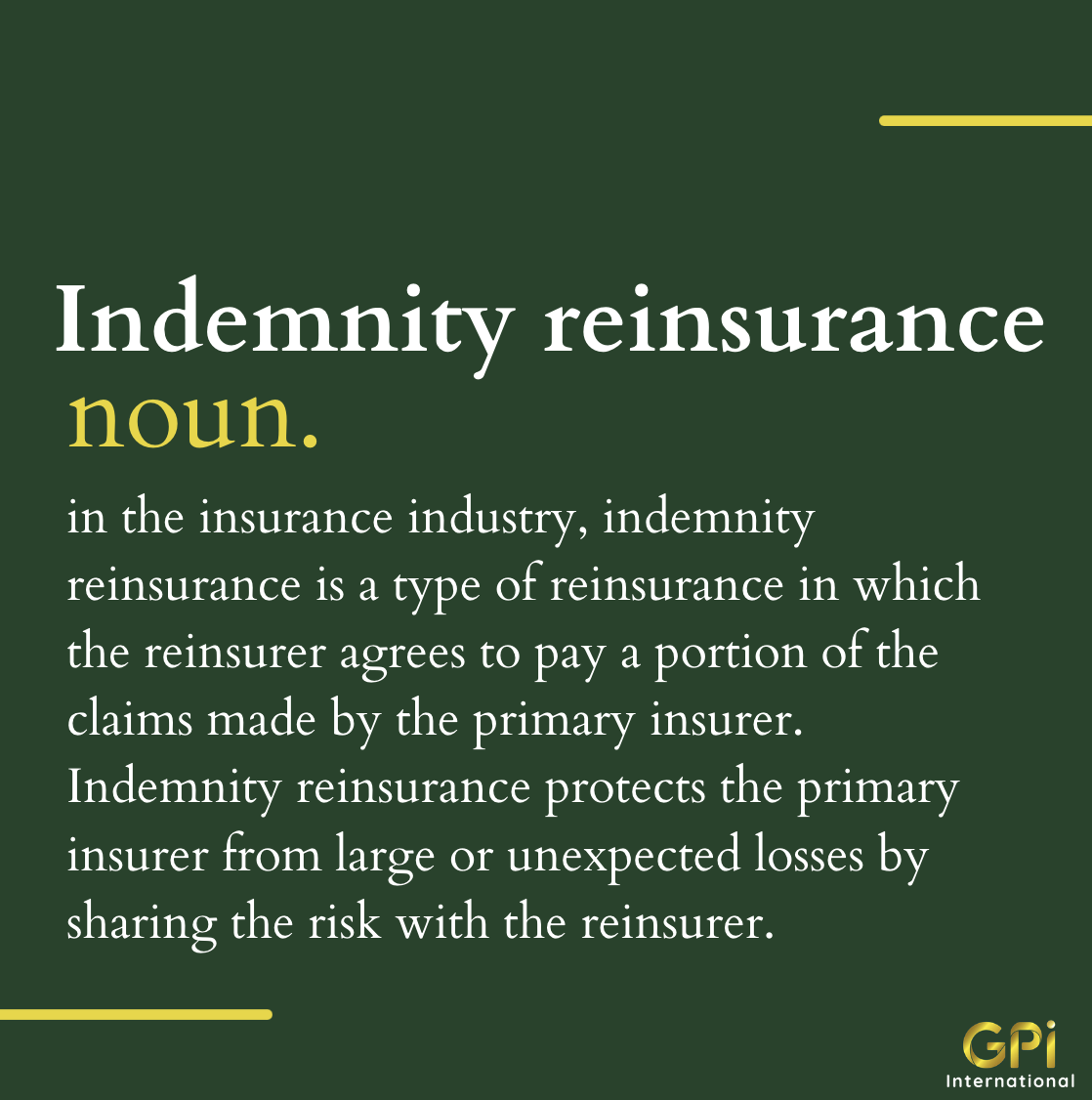Indemnity reinsurance
In the insurance industry, indemnity reinsurance is a type of reinsurance in which the reinsurer agrees to pay a portion of the claims made by the primary insurer. Indemnity reinsurance protects the primary insurer from large or unexpected losses by sharing the risk with the reinsurer.
For example, suppose an insurance company insures a construction company against property damage from natural disasters. If a hurricane causes $10 million in damage to the construction company’s property, the insurance company would be responsible for paying the claim. However, if the insurance company has purchased an indemnity reinsurance policy, the reinsurer would also pay a portion of the claim, reducing the insurance company’s total exposure to the loss. The amount that the reinsurer pays is based on the terms of the reinsurance agreement, which typically include a predetermined percentage of the claims paid by the primary insurer. In exchange for sharing the risk, the primary insurer pays a premium to the reinsurer. Indemnity reinsurance is a common type of reinsurance used in the insurance industry to help manage risk and protect against large losses.






